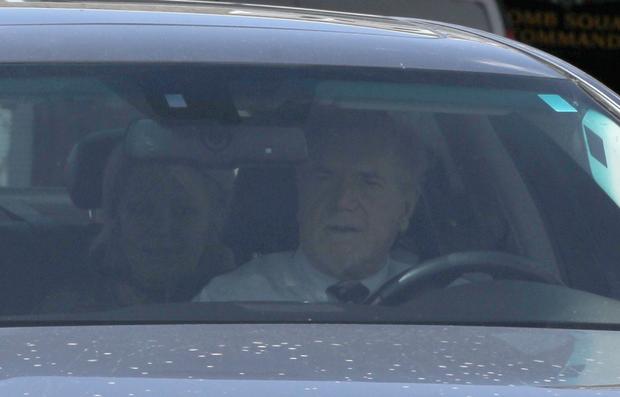Arizona woman released after decades on death row
PHOENIX An Arizona woman who spent more than two decades on death row was released on bond Friday after a judge ruled there's no direct evidence linking her to the death of her young son, other than a purported confession to a detective whose honesty has been questioned.
Debra Milke walked out of the Maricopa County Sheriff's jail after supporters posted $250,000 bond.
The 9th Circuit Court of Appeals overturned her conviction in March, stating that prosecutors should have disclosed information that cast doubt on the credibility of a since-retired detective who said Milke confessed.
The 49-year-old Milke has not been exonerated, but a judge said she could go free while preparing for a new trial in a case that made her one of Arizona's most reviled inmates.
Milke was convicted in the death of her 4-year-old son, Christopher, who was allegedly killed for a $5,000 insurance payout. His mother was accused of dressing the boy in his favorite outfit in December 1989 and telling him he was going to see Santa Claus at a mall before handing him over to two men who took the child into the desert and shot him. She had been imprisoned since 1990.
A defense lawyer told the judge last week that Milke would live in a Phoenix-area home purchased by supporters.
Prosecutors declined to comment on Milke's possible release and have not appealed the bond order.
Milke, whose mother was a German who married a U.S. Air Force military policeman in Berlin in the early 1960s, has drawn strong support from citizens of that nation and Switzerland, neither of which has the death penalty.
Max Krucker, former president of the Swiss community where Milke's mother now lives, said Renate Janka was "ecstatic" Friday about the possibility that her daughter would be released. She was planning to fly to Arizona as early as Saturday, Krucker said.
"She said, `Now I can finally hold my daughter in my arms again,"' he told The Associated Press in a telephone interview from his home.
For as long as Milke has been incarcerated, she and her mother have only met in situations where they were separated by glass.
"They were never able to touch," Krucker said.
A dozen years ago, Krucker was among the organizers of an effort in the Swiss town of Emmetten to support Milke, including by establishing a bank account that collected donations to aid in her defense. The account eventually netted about 200,000 Swiss francs, or about $213,000 today. It's now nearly drained, he said.
Doubts about Milke's guilt and deep suspicion about the reliability of the detective's testimony helped motivate Swiss supporters to donate, as did opposition to the death penalty. Many also had concerns that Milke didn't have access to the best defense because she had too little money, he said.
Now supporters are excited about the prospect of her release, Krucker said, but also worried how she will manage to pay the bond.
Janka, who is suffering from cancer, was already forced to sell her home to help cover her daughter's legal bills, he said.
Supporters also run a website that requests donations through both German and Swiss accounts.
Milke's ex-husband, whose name is Arizona Milke, believes his former wife is guilty and that supporters are fooled by the postings on the website.
"It's fed by propagandized lies," he said Friday. "They write whatever they want and put it up there like it's true."
Her chance at freedom comes six months after a federal appeals court overturned Milke's conviction, ruling that the prosecution should have disclosed information about the truthfulness of the now-retired detective who testified that Milke confessed.
Milke was a 25-year-old insurance company clerk when her son was killed. She has maintained her innocence, saying she had nothing to do with the slaying.
The two men convicted in the case both remain on death row. Neither Roger Scott nor former Milke roommate James Styers testified at Milke's trial. Scott confessed during a police interrogation and led detectives to the boy's body.
Maricopa County prosecutors are still seeking the death penalty against Milke at her retrial, tentatively set for Sept. 30, and her alleged confession is at the heart of the case against her.
Police detective Armando Saldate Jr. testified that she confessed to him in a closed interrogation room. But the confession was not recorded.
At trial, Milke denied that she had confessed, but the jury believed the detective.
Doubts about Saldate's honesty arose during Milke's appeals. The 9th Circuit concluded in March that prosecutors' failure to turn over evidence related to Saldate's credibility deprived Milke's attorneys of the chance to question his truthfulness before jurors.
"No civilized system of justice should have to depend on such flimsy evidence, quite possibly tainted by dishonesty or overzealousness, to decide whether to take someone's life or liberty," Chief Judge Alex Kozinski wrote for the court.
The court noted four cases in which judges threw out confessions or indictments because Saldate lied under oath and four instances in which cases were tossed out or confessions excluded because Saldate violated the suspect's constitutional rights.
